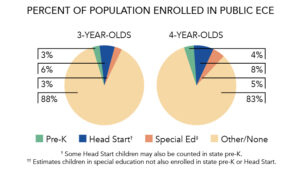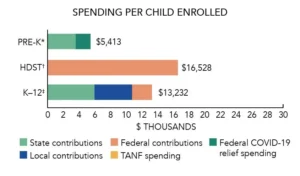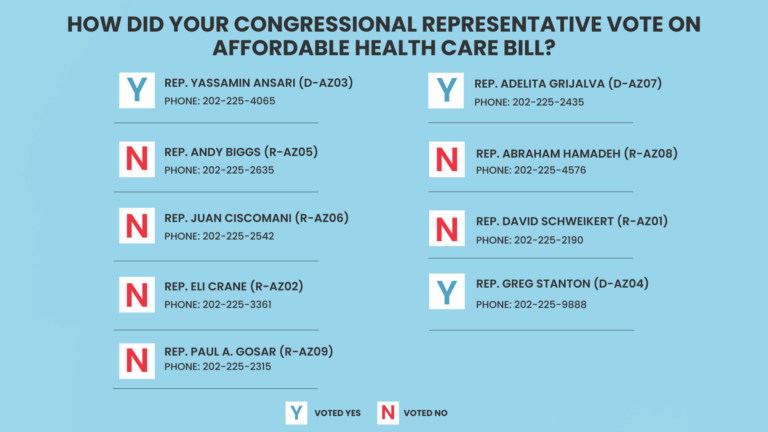
Arizona Preschoolers Are at Risk of Being Left Behind
Last Thursday, the National Institute for Early Education Research (NIEER) released its annual State of Preschool Report. The report is a state-by-state comparison of preschool program funding, access, and best practice policies. This year’s report notes that preschool programs are at a critical juncture. During the COVID pandemic, enrollment in programs decreased drastically while there was an influx of pandemic relief funding intended to help maintain the infrastructure. As that temporary federal funding is ending, states, including Arizona, face the choice of producing their own additional resources for preschool or backsliding on their progress.

During the 2022-2023 school year, enrollment of 4-year-olds in public preschool increased, but Arizona still lags far behind the rest of the country, placing forty-third out of fifty. State spending totaled $20,779,103 (almost all attributed to First Things First funds), and an additional $11,450,342 in federal recovery funds supported the program, up $10,792,365 (50%), adjusted for inflation since last year. Policymakers have invested zero general fund dollars into preschool. Arizona remains unchanged and way behind the rest of the nation in meeting only three of the ten best practice benchmarks. While much of the rest of the nation has made noteworthy progress, children are being left behind in states like Arizona that have not made any fundamental changes. Access to high-quality preschool is one way to ensure that young children arrive at kindergarten ready to succeed.

It is more important than ever for our policymakers to prioritize investing in high-quality early childhood programs.



